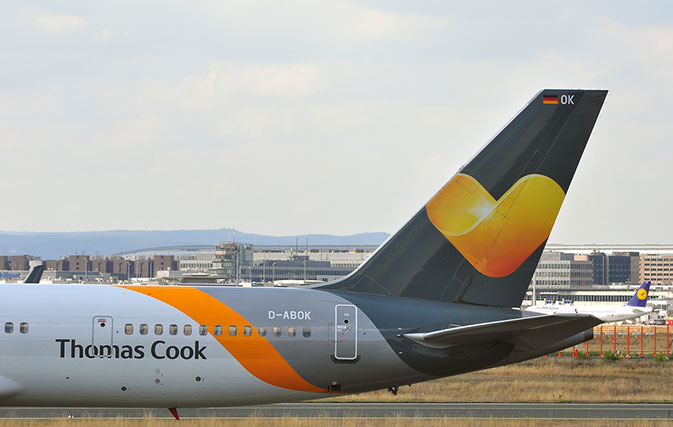TORONTO — It came down to a last-ditch effort to secure funding that everyone assumed would be successful. It wasn’t. And just like that, Thomas Cook, one of the oldest and best-known travel companies in the world, was out of business.
The beleaguered company’s fate had been in the balance for months and it needed an extra 200 million pounds, on top of a 900 million pound rescue package already received, to get it through.
It all played out on a September weekend and at 2 a.m. on Monday, Sept. 23, Thomas Cook issued a statement. The company had gone into liquidation, stranding some 600,000 travellers in vacation destinations around the world.
The Canadian travel industry watched from the sidelines, no stranger to the Thomas Cook brand but without any Thomas Cook presence in this market for several years (except for Thomas Cook-owned Condor, which got financing from the German government and continues to serve the Canadian market).
Back in 2007, MyTravel merged with Thomas Cook. Airtours had acquired Sunquest in 1994 and rebranded as MyTravel in 2002. Thomas Cook Canada was one of the biggest players in the Canadian tour operator industry for years.
In 2013 Frank, Enzo and Joe DeMarinis announced that the company they acquired from Thomas Cook Group would be known as TravelBrands Inc.
Thomas Cook’s retail presence in Canada was also dominant. In 2006 Transat had its eye on 430 retail outlets when it bought Thomas Cook Travel for $7.4 million.
Competition from OTAs as well as uncertainty surrounding Brexit, terrorist attacks in UK favourites like Egypt and Tunisia, plus a few hot summers that saw UK travellers staying home instead of travelling abroad to more UK favourites including Greece, Spain and Portugal, created a perfect storm for the 178-year old company.
When it collapsed Thomas Cook operated a fleet of 105 airline jets and had 555 travel agencies on major streets across Britain, and 200 hotels.
The repatriation effort, dubbed ‘Operation Matterhorn’, ran until Oct. 6 with more than 1,000 flights in total. It was Britain’s biggest repatriation since World War II and was expected to cost some 100 million pounds.
In mid-October Hays Travel in the UK scooped up the 555 Thomas Cook travel agencies in a deal that was cheered by the industry as an investment in storefront retail travel’s future.
Also in October, former Thomas Cook executives including Peter Fankhauser, Harriet Green and Manny Fontenla-Novoa were in the spotlight as they defended their leadership stints at the beleaguered company.
CTO OFFICE CLOSURES
The Thomas Cook hearings came at the same time as news of another shocker for the travel industry: the Caribbean Tourism Organization’s (CTO) decision to close its two marketing offices in New York City and London, with impact for its Canadian office as well.
In the announcement, made Oct. 15, the CTO said the move is being made “to better streamline our operations and finances”.
The New York office will close by Dec. 31 and the UK office, by Jan. 31.
Nancy Drolet, the CTO’s Business Development Representative here in Canada, joined the organization in spring 2017. Drolet’s work is an offshoot of the New York office.
“It’s sad that CTO won’t have a presence in Canada,” Drolet told Travelweek. “I think we (the tourism boards and I) were all working together well, and I was looking forward to the activities we were planning for 2020 to raise awareness of the region as a whole.”
The news came in the same year that the Mexican government eliminated the Tourism Promotion Council of Mexico (CPTM) and put into motion the worldwide closure of Mexico Tourism Board offices.
Watch for more year-end coverage in Travelweek Daily on Dec. 30th and Dec. 31st as we continue to look back at everything making headlines in 2019, from the proposed Air Canada – Transat deal, to the best oddball stories of the year.

